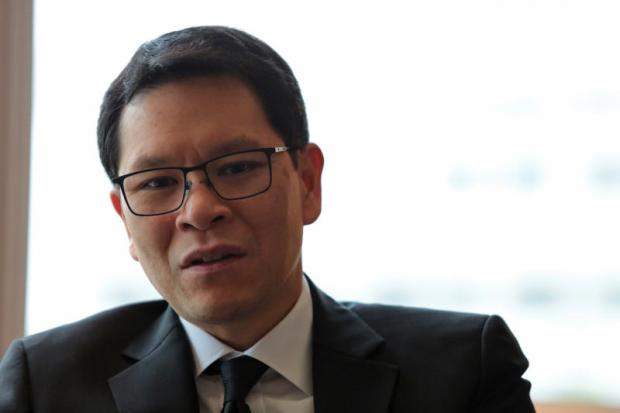
As inflationary pressure remains subdued, the Bank of Thailand will continue with its accommodative stance to support the country's economic recovery, the central bank's chief says.
The economic pickup is not yet broad-based and inflation is not a concern, so monetary policy can remain accommodative, said governor Veerathai Santiprabhob.
The Bank of Thailand's Monetary Policy Committee (MPC) has kept its policy rate unchanged at 1.5% since April 2015.
Analysts are divided on the central bank's monetary stance. Some economists forecast the rate-setting panel to begin normalising in the second half of 2018, while others see a static rate throughout the year.
And while the US Federal Reserve is widely expected to hike rates further in the coming year, Mr Veerathai said the Bank of Thailand is not worried about capital outflows, as the country's external position remains solid with a high foreign reserve buffer.
"We've built up a sound buffer over the past few years," he said. "With stronger fundamentals than other emerging markets, capital outflows will not weaken our economy."
Although the MPC gives more weight in decision-making to internal factors, the global environment -- especially oil prices, inflation and the monetary policies of major economies -- will be taken into account, Mr Veerathai said.
The central bank at December's meeting upgraded its GDP growth forecast for both 2017 and 2018 to 3.9% from an earlier 3.8%.
For its 2018 management strategy, the Bank of Thailand will stick to its current three-year strategic plan through next year.
Supervision will be tightened in several areas to prepare for rapid changes in the global environment.
More stringent supervision of financial institutions -- particularly with regard to stress tests, market conduct, financial literary and cybersecurity -- is also needed, Mr Veerathai said.
Assistant governor Ruechukorn Siriyothin said the central bank will extend its supervision of market conduct to deposits and retail loan products in 2018, aiming to protect consumers.
Cybersecurity is another key area of focus for the central bank amid the digital shift.
The Bank of Thailand will collaborate with regulators such as the Securities and Exchange Commission and the Office of Insurance Commission to strengthen the financial and capital markets.
The central bank plans to permit use of debit- and credit-card-based QR code payments and PromptPay-based bill payment service as scheduled in 2018.
Plans call for extending PromptPay's money transfer service to consumer-to-business and business-to-business use next quarter after consumer-to-consumer was rolled out this year.
As of Dec 17, PromptPay registration numbered 37.1 million users.
Another assistant governor, Jaturong Jantarangs, said the central bank will stick to three risks -- credit, market and operating -- in conducting stress tests, which can alert the banking sector to problems before they become unexpected shocks.